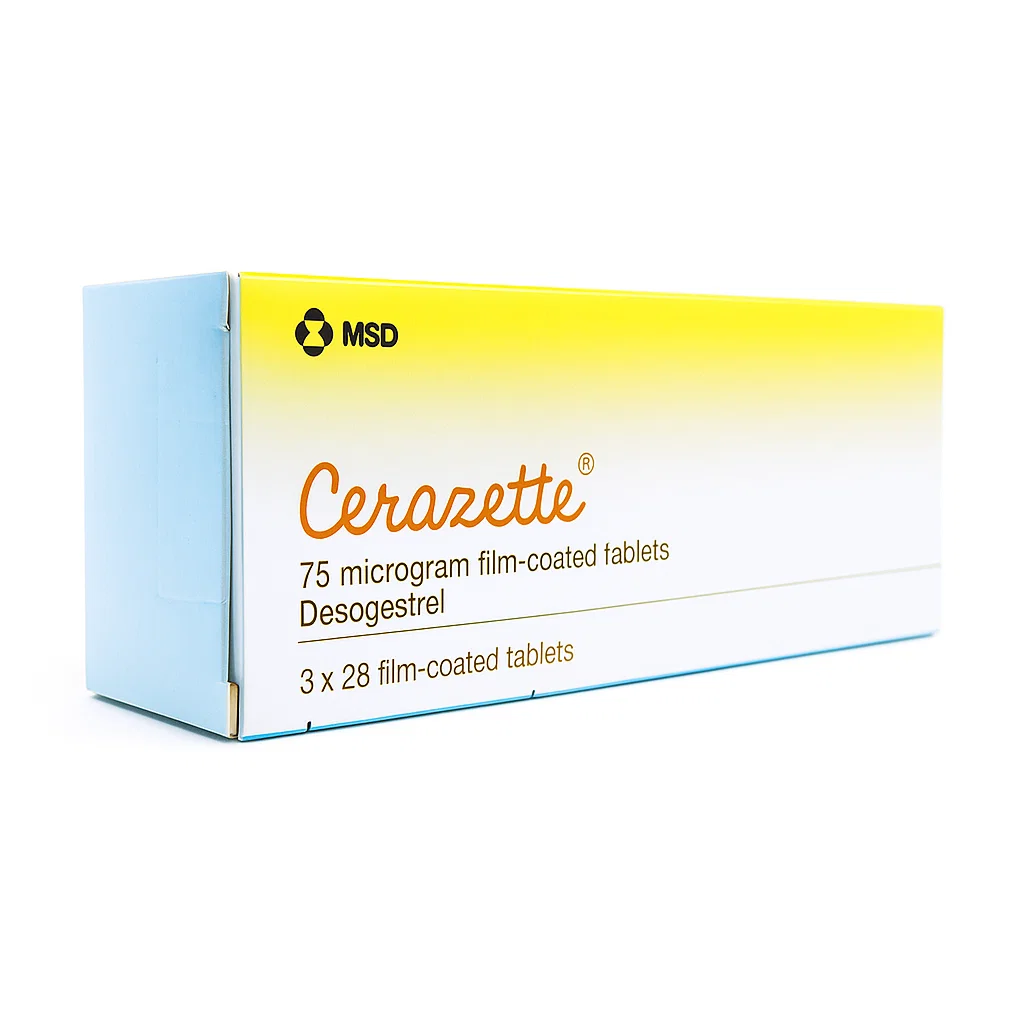What Is Cerazette?
Cerazette is a progestogen-only contraceptive pill—often called the “mini-pill.” Each tablet contains 75 micrograms of desogestrel, a hormone that helps prevent pregnancy without using oestrogen. This makes it a suitable choice for women who can’t take oestrogen or simply prefer not to. Cerazette offers a convenient, daily method of contraception that fits easily into most lifestyles.
What Is Cerazette Used For?
Cerazette is prescribed to prevent unplanned pregnancies and works as a reliable, oestrogen-free contraceptive option. It’s ideal for:
— Protecting against pregnancy when taken correctly
— Providing hormonal contraception without oestrogen
— Offering safe use during breastfeeding, without affecting milk supply
How Does Cerazette Work?
Cerazette prevents pregnancy in a few different ways. First, it stops ovulation, so the ovaries don’t release an egg. At the same time, it thickens the mucus in the cervix, which makes it harder for sperm to reach an egg. It also changes the lining of the womb, reducing the chance of a fertilised egg implanting. This three-pronged approach helps protect against pregnancy with daily use.
How Should Cerazette Be Taken?
For best protection, take Cerazette consistently and follow these simple steps:
— Take one tablet at the same time every day, without breaks
— Swallow it whole with water—don’t chew or crush
— Start on days 1–5 of your period for immediate contraceptive cover
— If starting at any other time, use extra contraception (like condoms) for the first 2 days
Consistency is key—set a daily reminder if needed to stay on track.
Are There Any Side Effects?
Like all medicines, Cerazette may cause side effects, although not everyone gets them. Most are mild and tend to improve as your body adjusts.
Common side effects include:
— Irregular periods or spotting
— Mood changes
— Headache
— Nausea
— Breast tenderness
— Acne
Uncommon or rare side effects can include:
— Hair loss
— Changes in sex drive
— Weight changes
— Ovarian cysts (usually harmless and go away on their own)
If you notice anything unusual or persistent, speak to your doctor or pharmacist for advice.
Who Should Avoid Cerazette?
Cerazette isn’t right for everyone. This contraceptive should be avoided if any of the following apply:
— A history of breast cancer
— Severe liver disease or liver cancer
— Unexplained vaginal bleeding
— A known allergy to desogestrel or any ingredient in the tablets
Before starting this contraceptive, it’s important to speak to a doctor—especially if you have any ongoing health conditions or concerns.
How Should It Be Stored?
Keep Cerazette tablets safe and effective by storing them properly:
— Store below 30°C in a dry place
— Keep in the original packaging to protect from moisture and light
— Keep out of sight and reach of children
— Don’t use past the expiry date printed on the packaging
— Return any unused tablets to your pharmacy for safe disposal



